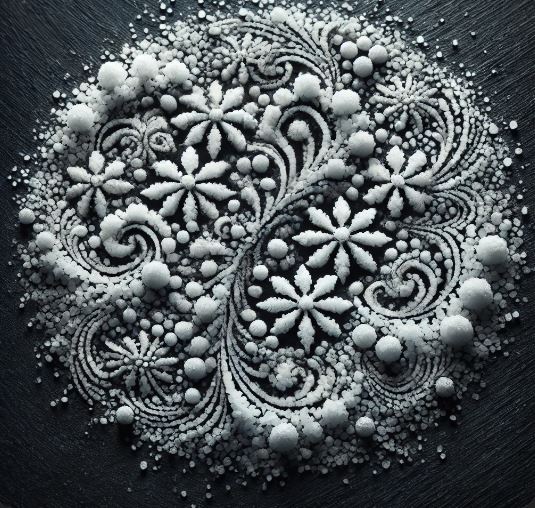As I stood in my kitchen, pickling a fresh batch of okra from my garden, I found myself pondering the different varieties of salt in my pantry. Each type—kosher, sea, and pickling salt—seemed to have its own unique purpose, just like the different roles salt plays in the Bible. My curiosity led me to explore not only the practical applications of these salts but also their deeper significance in scripture. The more I thought about it, the more I realized how vital salt is, both in preserving food and in symbolizing faith and covenant in biblical times.
In biblical times, salt was an essential commodity, valued not just for its practical uses but also for its rich symbolism. Extracted from the Dead Sea or mined from natural salt deposits, it was a key resource for preservation and purification. In a world without refrigeration, salt preserved food, sustained life, and even served as a currency of sorts, bartered and traded in the ancient markets.
Salt as a Covenant Symbol
In Leviticus 2:13, God commands, “Season all your grain offerings with salt. Do not leave the salt of the covenant of your God out of your grain offerings; add salt to all your offerings.” This directive wasn’t just about flavor; it was about representing the enduring and preserving nature of God’s covenant with His people. In the ancient Near East, salt was a symbol of loyalty and permanence, making it a powerful metaphor for the everlasting bond between God and Israel.
Salt as a Purifier and Preserver
The purifying power of salt is illustrated in 2 Kings 2:20-21, where the prophet Elisha uses salt to heal a polluted spring: “Bring me a new bowl,” he said, “and put salt in it.” So they brought it to him. Then he went out to the spring and threw the salt into it, saying, ‘This is what the Lord says: I have healed this water. Never again will it cause death or make the land unproductive.'” Here, salt symbolizes God’s ability to cleanse and sustain life, turning what was once toxic into a source of nourishment.
Salt as a Sign of Judgment
Salt also served as a symbol of judgment. In Genesis 19:26, Lot’s wife looked back at the city of Sodom and was turned into a pillar of salt: “But Lot’s wife looked back, and she became a pillar of salt.” This transformation was a stark reminder of the consequences of disobedience. In this context, salt’s preservative qualities also meant a permanent reminder of God’s judgment.
Salt of the Earth
In the New Testament, Jesus used salt as a metaphor for His followers’ role in the world. In Matthew 5:13, He said, “You are the salt of the earth. But if the salt loses its saltiness, how can it be made salty again? It is no longer good for anything, except to be thrown out and trampled underfoot.” Here, salt represents the influence and responsibility of believers to preserve goodness and spread God’s teachings in a world prone to moral decay.
Covenant of Salt
Finally, the phrase “covenant of salt” appears in Numbers 18:19, where God declares, “Whatever is set aside from the holy offerings the Israelites present to the Lord I give to you and your sons and daughters as your perpetual share. It is an everlasting covenant of salt before the Lord for both you and your offspring.” This covenant of salt signifies an enduring and unbreakable agreement, emphasizing the steadfast nature of God’s promises. In the ancient world, salt was highly valued for its preservative properties and ability to purify, symbolizing the eternal and incorruptible nature of the covenant between God and His people. This imagery reminds believers of the sacred and enduring relationship they are called to uphold with the Lord.
